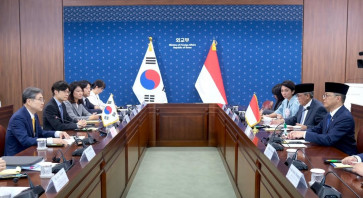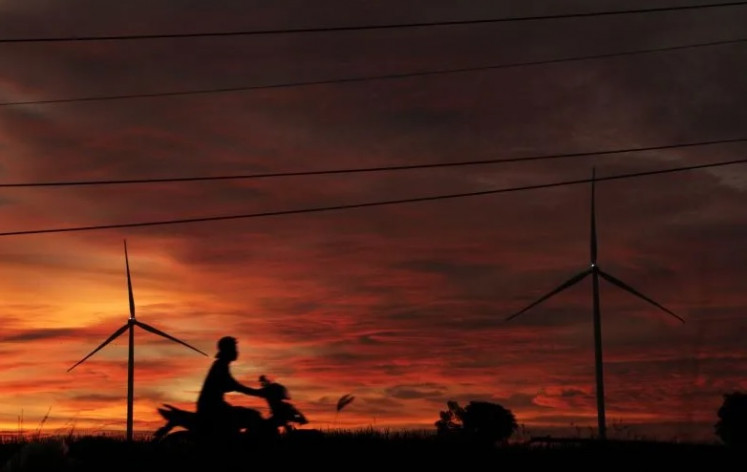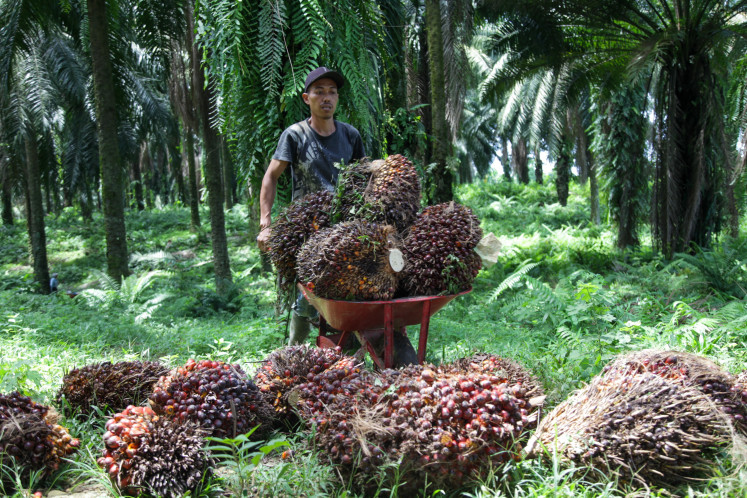Popular Reads
Top Results
Can't find what you're looking for?
View all search resultsPopular Reads
Top Results
Can't find what you're looking for?
View all search resultsGovt ready to distribute customary lands
The government has wrapped up the task of setting up a task force aimed at protecting the rights of indigenous people and preserving their customary lands
Change text size
Gift Premium Articles
to Anyone
T
he government has wrapped up the task of setting up a task force aimed at protecting the rights of indigenous people and preserving their customary lands.
Cabinet Secretary Andi Widjajanto said that the government had finished preparing the final draft of the presidential decree for the formation of the team and would soon submit it to President Joko 'Jokowi' Widodo to be signed later in August.
'After that [the task force] can start working immediately,' he told reporters after a meeting with Environment and Forestry Minister Siti Nurbaya Bakar at her office in Central Jakarta on Friday.
The task force will aid long-neglected indigenous people in cultivating and conserving their lands, according to Andi.
'So the task force has two main functions. The first is to protect indigenous people in their activities related to land use. The second is to ask them to actively participate in the ratification of the Indigenous People's Rights Acknowledgment and Protection Bill,' Andi said.
The bill, proposed by the Indonesian Democratic Party of Struggle (PDI-P) in 2012, is aimed at providing a stronger legal basis for the settlement of customary land disputes in the country. It covers the definition of an indigenous community and a much-needed procedure to settle customary land disputes.
Despite the bill being among the House of Representatives' 66 priority bills in 2014, lawmakers failed to pass it into law, blaming the government's lack of commitment for the sluggish progress.
Jokowi pledged during his presidential campaign to push for the bill's endorsement, a promise that he did not keep as the government did not include the bill on its priority deliberation list at the House for this year.
The establishment of the task force is part of the government's attempt to provide better protection and a more secure livelihood for indigenous people, who for decades have had to fight for their land rights. Many concessions for mining and plantations are allocated on customary land belonging to indigenous peoples.
To deal with rampant land disputes involving indigenous communities, the Environment and Forestry Ministry has set a target of redistributing 12.7 million hectares of social forests in the years 2015-2019.
'But the concrete design [of the land distribution mechanism] has to be finalized by us in detail through cabinet meetings. Basically there are some mechanisms [that we could use]. We will decide on that [in the future],' Siti Nurbaya said.
In a bid to meet the target, Siti issued a new ministerial regulation in March 2015 that required private companies to allocate at least 20 percent of their existing concession areas for management by local people.
Under the regulation, the ministry plans to take 5.5 million ha from concession forests totaling 30 million ha, which are composed of industrial forest permits (HTI) of around 10 million ha and natural production forest concessions (HPH) of around 12 million ha, and form them into partnership forests, Hutan Kemitraan (HK).
Forest research agency Tropenbos International Indonesia Programme said that the regulation is the cheapest, simplest and quickest approach to execute.
However, forestry companies have raised concerns over the regulation, saying the ruling would severely hurt their plantation operations.
Association of Indonesian Forest Concessionaires (APHI) executive director Purwadi Soeprihanto said that the regulation would make their forestry business no longer economically viable because it would significantly reduce the size of their plantation areas.
The government has acknowledged the resistance, saying that many companies had failed to abide by the regulation.
'Companies have not done that [allocating 20 percent of their concession areas]. I'm not afraid to say that based on the data that I've seen as well as testimonies from some companies,' Environment and Forestry Ministry director-general San Afri Awang said on Friday.










